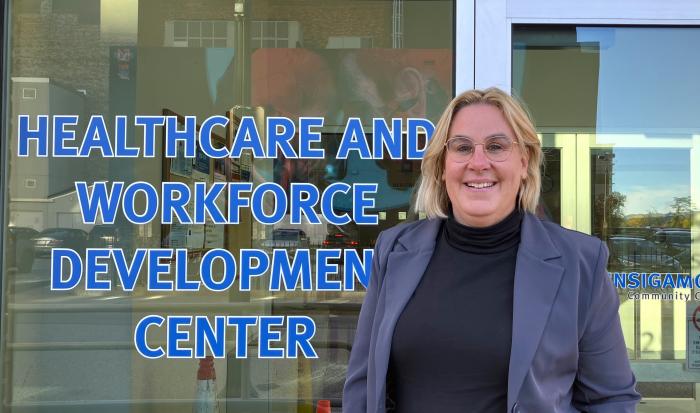
Quinsigamond Community College recently welcomed Saskia van den Akker, a nursing professor from Koning Willem I College in ’s-Hertogenbosch/Oss, Netherlands, for an educator exchange program. Her visit offered valuable insights into how Dutch institutions are addressing workforce challenges in healthcare and sparked ideas for how QCC might evolve its own programs.
Professor of Nurse Education Judith Giacoppe hosted van den Akker, accompanying her as she toured the main campus, met with faculty, staff, and students, presented at a staff meeting and attended a student clinical. They also carved out time for sightseeing trips to Boston and Provincetown.
"Fortunately, we both are very excited about our profession and didn't tire of conversation," said Giacoppe, who is brushing up on the Dutch language.
During her visit, van den Akker was impressed by QCC's use of simulation (SIM) labs and expressed interest in incorporating this technology into her own teaching practice. She also observed that the curriculum at QCC is in depth and noted the emphasis on medication management, whereas the Dutch focus more on preventative care.
“In the Netherlands, we have many open jobs in healthcare. Healthcare is hard work,” Saskia explained.
To meet this challenge, Konig Willem I offers two main educational pathways for healthcare students. In one pathway, students attend school full-time and participate in internships one day a week and in the other, students are employed by a healthcare organization three to four days a week and attend school one day.
QCC staff were particularly enthusiastic about the work-based learning model van den Akker described. Giacoppe explained that van den Akker's insights were especially valuable as the Practical Nursing program has just begun to implement employer partnerships. Van den Akker works primarily with students in the work-based path.
To support flexibility and faster entry into the workforce, Dutch colleges also offer short-term certificates that allow students to earn credentials quickly while continuing their education, which van den Akker believes will increase in popularity moving forward. Regardless of the format, she emphasized the importance of the soft skills that students gain from these programs.
“We’re proud of how we educate students to think for themselves and make their own choices,” Saskia said.
Her visit was a reminder of the value of international exchange and the potential for innovation through shared ideas. As QCC continues to explore new models for student success, van den Akker’s insights may help shape the future of healthcare education right here in Worcester.
